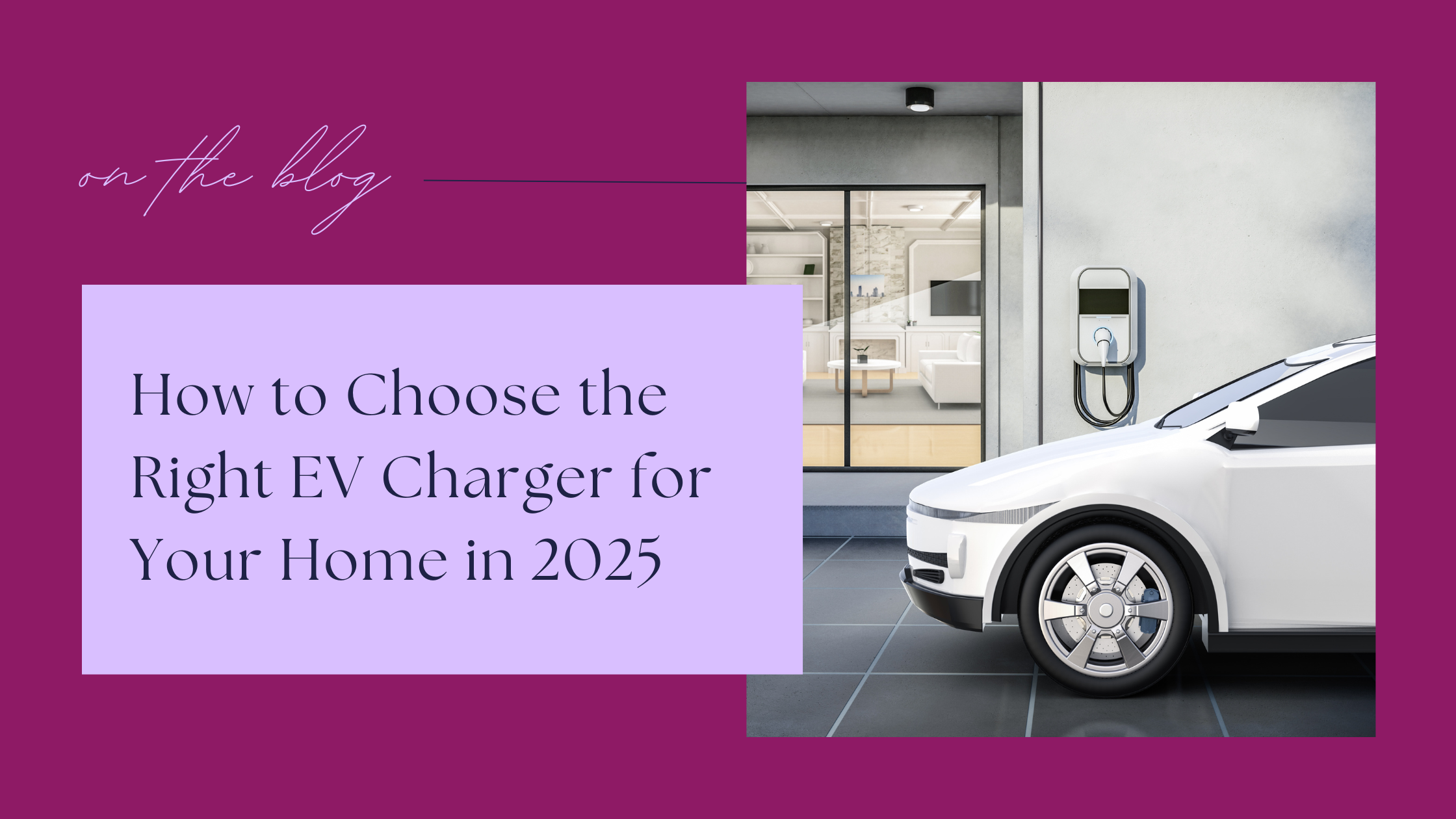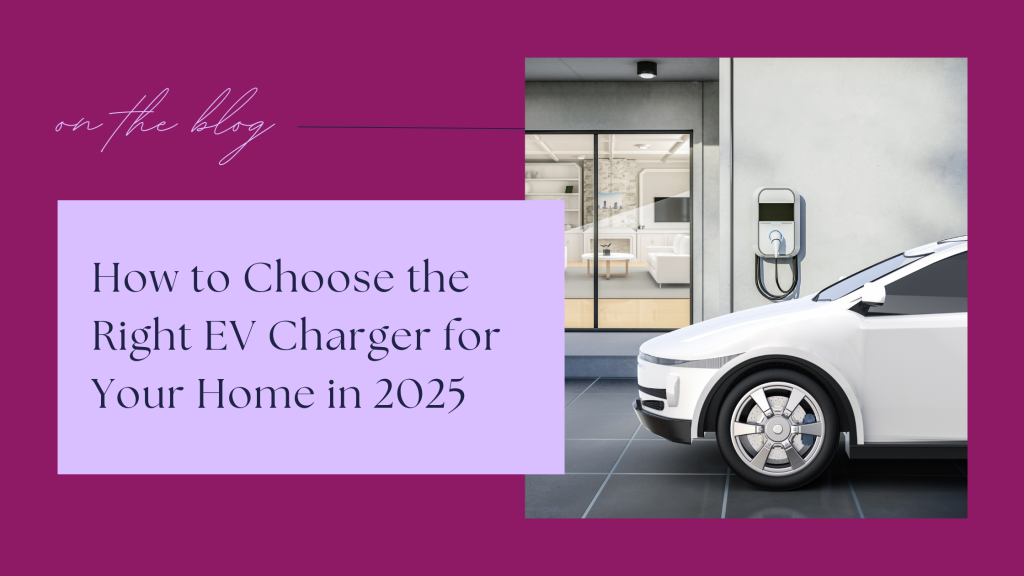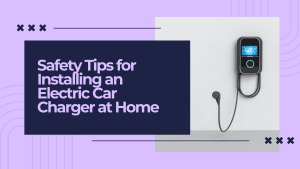As electric vehicles (EVs) become more mainstream, installing the best home EV charger is an essential step for EV owners. With numerous options available, choosing the right EV charging station can seem overwhelming. This guide will help you navigate through different charger types, key features, and considerations to make the best decision for your needs in 2025.
Understanding EV Chargers
Before deciding on the best home electric vehicle charger, it’s important to understand the different types of chargers and what features they offer.
Types of EV Chargers
There are three primary types of EV chargers that homeowners can choose from:
- Level 1 Chargers: These chargers use a standard 120V outlet and are typically slower, taking up to 24 hours to fully charge an EV. They’re ideal for those who don’t mind longer charging times and have limited driving needs.
- Level 2 Chargers: These chargers operate on a 240V circuit and are much faster than Level 1 chargers. Most home car charging stations are Level 2 chargers, providing a full charge within 4-8 hours. This is the best home electric car charger for daily use.
- Level 3 Chargers (DC Fast Chargers): Mostly used in commercial or public settings, Level 3 chargers are the fastest but are typically not suitable for home use due to their high installation cost and power requirements.
Key Features to Look For in an EV Charger
When shopping for the best EV chargers, consider the following features to ensure you choose the right one for your home:
- Charging Speed: Look for charging stations with adjustable power settings, which can suit different vehicle models.
- Safety Features: Opt for chargers that offer built-in safety features like ground fault protection, overvoltage, and surge protection.
- Compatibility: Ensure the car charger for electric car you choose is compatible with your vehicle’s make and model.
Assessing Your Home’s Electrical System
Before purchasing any EV charging stations, it’s essential to evaluate your home’s electrical system to ensure it can handle the added load.
Check Your Electrical Panel Capacity
Your electrical panel needs to have the capacity to support the best home EV charger. Level 2 chargers require a 240V outlet, so it’s crucial to check whether your existing electrical panel can accommodate this.
Determine Circuit Requirements
EV chargers require dedicated circuits. The car charger for electric car you choose should be installed on a separate circuit to prevent overloading your home’s system. Make sure the charging station meets the requirements of your home’s electrical infrastructure.
Consult an Electrician
It’s always a good idea to consult an electrician when considering an electric vehicle charger installation. An electrician can assess your home’s wiring, recommend any upgrades, and ensure safe and proper installation of your charger.
Factors to Consider When Choosing a Home EV Charger
Choosing the right charger goes beyond just the technical specifications. Consider the following factors to make an informed decision:
Charging Needs and Habits
Think about your daily driving habits and how long you need your car to charge. If you need fast charging, a Level 2 charger is the better option. For less frequent charging, a portable EV charger might suffice.
Smart Charger Features
In 2025, many chargers come with smart charger features. These include the ability to schedule charging, track energy usage, and receive alerts. Smart chargers can help you monitor your charging needs and optimize energy consumption.
Location and Weather Conditions
Consider where you’ll install your charger. If you need an outdoor electric car charger, ensure it’s rated for outdoor use and can withstand weather conditions like rain, snow, or extreme heat. Outdoor electric car chargers should be weatherproof and durable.
Cost and Incentives
Prices for EV chargers vary widely, but you may qualify for rebates, tax incentives, or special financing programs. Research available government incentives or rebates for purchasing EV charging stations to offset costs.
Comparing Popular EV Charger Brands in 2025
In 2025, several reputable brands offer high-quality EV chargers. Below are some of the top options available this year:
Brand A: Features and Benefits
Brand A offers a best dual EV charger with dual charging ports, allowing you to charge two vehicles simultaneously. It’s known for its fast charging time, compatibility with most EV models, and smart features, such as remote monitoring through an app.
Brand B: Features and Benefits
Brand B’s best home electric vehicle charger is highly rated for its compact design and ease of use. It’s suitable for both indoor and outdoor installations, offering adjustable power levels and a sleek user interface. Their chargers are designed for energy efficiency, saving you money on your electricity bill.
Brand C: Features and Benefits
Brand C specializes in portable EV chargers that are perfect for people on the go. With a lightweight and flexible design, their chargers are perfect for apartment dwellers or travelers who need a portable solution to charge their EV wherever they are.
Installation Tips for Your EV Charger
After selecting the best home electric car charger, ensure you follow these tips for smooth installation.
Choosing the Right Location
When choosing the location for your car charger for electric car, make sure it’s convenient and easily accessible. If you’re installing an outdoor electric car charger, ensure it’s close to your parking space and has enough protection from weather elements.
Hiring a Certified Installer
Hiring a certified installer is essential for the proper installation of your charging station. A professional can ensure that the charger is connected safely, adheres to electrical codes, and is properly grounded.
Common Mistakes to Avoid
Here are some common mistakes to avoid when choosing and installing your EV charger:
Choosing the Wrong Charger for Your Vehicle
Not all chargers are compatible with every type of vehicle. Make sure the best EV chargers you consider are compatible with your EV’s charging port and battery specifications.
Ignoring Future-Proofing
When selecting your charger, consider future needs. If you plan on purchasing a second EV or upgrading to a larger vehicle in the future, opt for a charging station that can handle multiple vehicles or higher power requirements.
Overlooking Energy Costs
Don’t forget to factor in the long-term energy costs associated with using your home car charging stations. Look for the best home EV chargers that are energy-efficient and consider opting for chargers that offer time-of-use pricing for lower electricity rates.
Choosing the best home EV charger for your needs in 2025 doesn’t have to be a difficult process. By evaluating your electrical system, considering your charging habits, and comparing different charger models and brands, you can find the perfect charger for your home. Don’t forget to follow proper installation tips and avoid common mistakes to ensure a safe and efficient charging experience.




